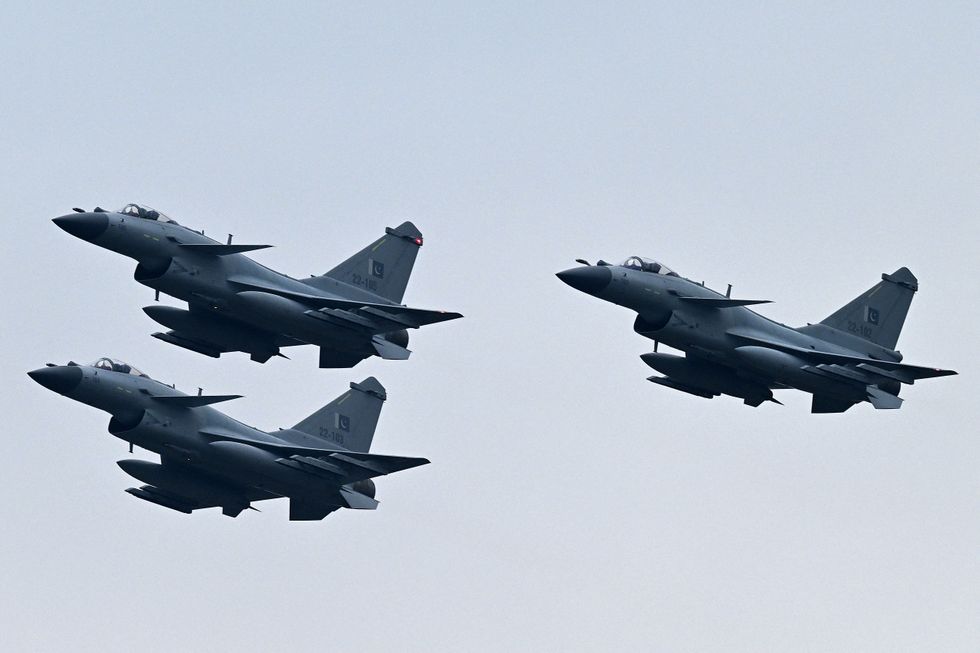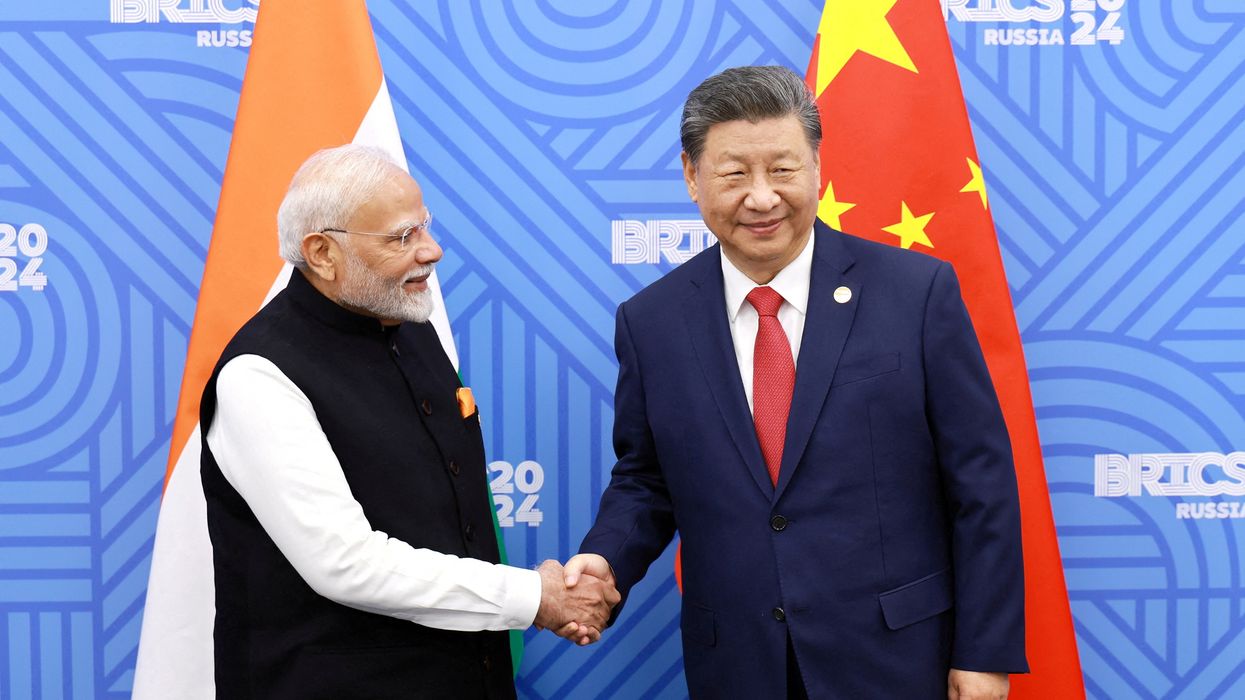THE conflict between India and Pakistan over Kashmir has presented China with a rare chance to gather valuable intelligence, as it monitors Pakistan’s use of Chinese-made jets and weapons in live combat with India.
Security analysts and diplomats said China’s military modernisation has reached a point where it can deeply scrutinise Indian actions in real time from its border installations and Indian Ocean fleets as well as from space.
“From an intelligence perspective, this is a rare target of opportunity right on China’s borders involving a key potential adversary,” said Singapore-based security analyst Alexander Neill.
Two US officials claimed a Chinesemade J-10 Pakistani jet fighter shot down at least two Indian military planes – one of them a French-made Rafale fighter. India has not acknowledged the loss of any of its planes, while Pakistan’s defence and foreign ministers have confirmed the use of J-10 aircraft, but not commented on which missiles or other weapons were used.
The aerial clash is a rare opportunity for militaries around the world to study the performance of pilots, fighter jets and air-to-air missiles in active combat, and use that knowledge to prepare their own air forces for battle.
Security analysts said both India and China have taken steps to strengthen their military facilities and capabilities along the border, but it is also from above that China packs an intelligence gathering punch.
The London-based International Institute for Strategic Studies (IISS) noted that China now fields 267 satellites – including 115 devoted to intelligence, surveillance and reconnaissance and a further 81 that monitor military electronic and signals information. It is a network that dwarfs its regional neighbours, including India, and is second only to the US.
“Both in terms of space and missile tracking capabilities, China is much better off now in terms of being able to monitor things as they happen,” said Neill, who is an adjunct fellow at Hawaii’s Pacific Forum thinktank.
China’s defence ministry did not respond to questions about its satellite deployment or intelligence activities.
Pakistan’s military media wing and information minister did not immediately respond to a request for comment on any information sharing with China.
Pakistan previously said it has an “allweather strategic, cooperative partnership” with China.
India has not commented on the issue, but its High Commissioner in London, Vikram Doraiswami, told Sky News that China’s relationship with Pakistan was not a concern for India.
“China requires a relationship with all of its neighbours, that includes us,” he said.
Chinese military intelligence teams would be eager to garner information on any Indian use of air defences and launches of cruise and ballistic missiles – not just in terms of flight paths and accuracy, but command and control information, analysts and diplomats said.
Any deployment of India’s BrahMos supersonic cruise missile – a weapon it developed jointly with Russia – would be of particular interest, some analysts said, given they do not believe it has been used in combat.

China has also beefed up its intelligence gathering at sea. It has been increasingly active in the Indian Ocean in recent years, with China deploying space tracking ships as well as oceanographic research and fishing vessels on extended deployments, open source intelligence trackers said.
Regional diplomats said while the Chinese navy has been relatively cautious about extensive warship deployments into the Indian Ocean, still lacking a broad network of bases, it actively seeks intelligence with these other vessels.
Over the past week, some trackers noted unusually large fleets of Chinese fishing vessels moving apparently in unison to within 120 nautical miles of Indian naval drills in the Arabian Sea as tensions rose with Pakistan.
Pentagon reports on China’s military modernisation and analysts note that China’s fishing fleets routinely perform a coordinated militia function that plays an important intelligence gathering role. “These vessels may double up as listening posts, tracking development rhythms and response patterns, feeding early warning, naval intel to their sponsors,” wrote open source tracker Damien Symon in an X post that highlighted the deployment of 224 Chinese vessels near Indian naval exercises on May 1.
Chinese officials do not usually acknowledge the existence of fishing militia or intelligence work carried out by other nominally civilian vessels.
Given its close ties with Pakistan, Beijing is likely to exploit its network of envoys and military teams to gather intelligence.
“The presence of Chinese military advisers and other personnel in Pakistan is well-known given how Pakistan’s Ministry of Defence has been importing some of its most advanced military hardware from China, so we can be certain the PLA would be able to access relevant data,” said James Char, a Chinese security scholar at Singapore’s S Rajaratnam School of International Studies.




